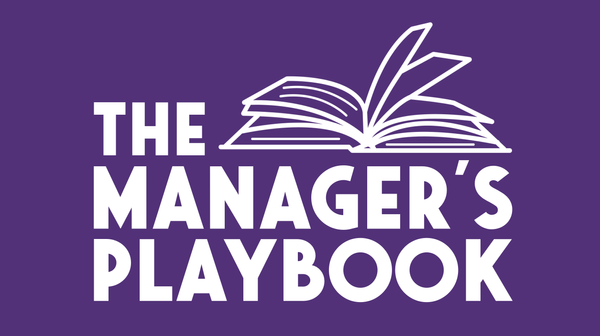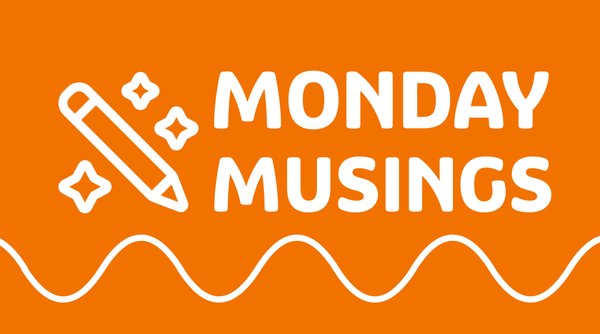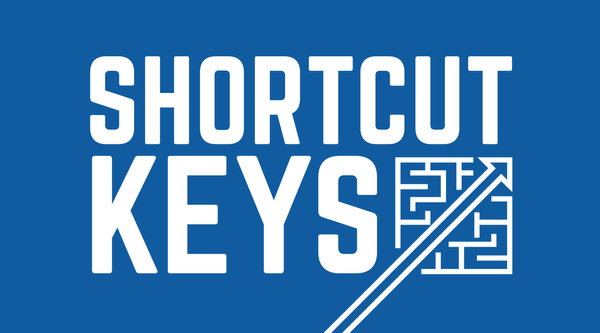Prompts for Brainstorming Talk Ideas

Right, you've sat down to come up with a new talk idea, you're looking at your screen/paper and... your mind is blank. Coming up with talk ideas is hard!
We often don't realise what things we could be talking about or how to get started with coming up with ideas. You want to give a talk, but you don't know what to focus on yet. Maybe your mind goes blank, each time you start thinking about this. If that's the case, this post is for you! We'll look at specific prompts and exercises to help you brainstorm a list of potential talk ideas.
If you're new to this blog, I previously covered the following about talk ideas:
In that last post, I showed the framework that I use for brainstorming talk ideas. When reflecting on what to talk about, I encourage people to look at 3 different areas:
- You: What do you want to talk about? What things are you interested in? What things are you good at?
- Location: Where do you want to do this talk? Is it at a specific conference or meet-up? Is it internally at work? What types of talks are given at this event? What is the goal of the event?
- Audience: Who is your audience? What is their background? What do they want to learn? What do they already know? What do they aspire to become?
The above might have been enough for you to get started and generate some ideas. What I've learned from coaching people with their talks, though, is that it often helps to get more specific prompts. Everyone has an interesting talk topic inside of them, but it's about discovering what it is. So if you’re unsure where to start, in this post, you'll find specific prompts to get you thinking about what you know through different lenses.
Let's get started!
So, it's time to write down some ideas! If you already have some things in mind, that's awesome. Write them down first. Then, move on to the prompts below. Begin with the questions in the area (You, Location, and Audience) that you want to focus on first. The idea is to brainstorm as many ideas as possible.
It's up to you in what format you want to do this. I normally do this exercise with post-it notes, writing down each idea on a separate note and creating clouds of talk ideas that relate to each other. I've also done this as a mind map: just grab a piece of paper, and write down your different ideas as bubbles. You can branch off to other ideas, slowly building out a graph of ideas. But you can also do this as a simple list, adding each idea as you go on. It's about finding what method works best for you - what will allow you to capture as many ideas as possible?
Right now, we don't want to get hung up on whether or not it's a talk you want to submit anywhere. It's more about generating loads of ideas, regardless of how good an idea it is. One idea that might sound silly or small to you might inspire you to another idea! So, don't dismiss any ideas. It's all about collating all the ideas that you have to get you to start thinking about different types of talk topics.
Certain prompts might not work for you this time around. That's okay! Skip the prompts that don't work right now and continue to the next one. The intention is that these prompts will inspire different ideas for different people.
You: What you could talk about
- Write down all the topics you’re interested in. These could be areas that you are already familiar with, but they can also be areas you don't know anything about. It doesn’t matter how obscure – add it to the list!
- Think back to what you’ve done the past month. What problems did you come across that were challenging to deal with? What things did you work on that you’re proud of? What did you spend a lot of time on that maybe could have gone quicker if you knew something you do now?
- Make a list of all the things you did yesterday (or last week).
- What is unique to your team or your company? What would benefit others from knowing about?
- What is similar to other companies? What challenges/problems are similar, but might have different solutions or approaches?
- Can you remember any long emails, slack messages, git commits, pull requests, internal docs or long conversations recently, where you’ve explained something to someone? Would someone else benefit from learning that?
- Are there things that your colleagues or friends come to you for advice or to help with? What area do you already know more about than others?
- What’s one thing you wish everyone knew or was taught? Why?
- Think about recent conversations and discussions with friends or colleagues. What topic could you easily talk about for hours and hours with them? What excites you? What infuriates you?
- Close your eyes and imagine the following: you're on stage in front of an audience and they're all cheering for you. Why? What is it that you want to be known for?
- What’s something that you wish you could know more about? Are there any questions you have that you wish you knew the answer to? Coming up with a talk will give you a push to dive into that topic.
- What's a recent book, podcast or article you've read that has changed your perspective? What did you learn? How did you apply it to your own situation?
- What past experiences do you have that you could tie into a talk topic? What gives you a different perspective on how you approach your work?
- Think about past jobs or hobbies. What experiences prepared you for the work you do now?
- Think about what you got taught in high school, university, at work or in your free time. What did you learn? Or how did you learn it?
- Think about your favourite books, music, movies, museums, sports teams, famous (or non-famous) people, and games. Is there something you've learned in those areas that you could extend to your work?
- Think about your favourite anecdotes and memories. What stories about you and what you've done can you think of?
- Take a look at talks or speakers that inspire you. What do they have in common? What would your take on it be?
- Think back to when you started your career – are there any topics that you think could have helped you if you had heard about them earlier?
- What processes/work/things do you do that make your life easier? If other people did it too, would it make their lives easier?
Location: What events are looking for
- Write down all the conferences and meet-ups that you’d like to talk at, and then consider the below prompts for each event. Or if you're looking at submitting to a specific event, just focus on that one for now.
- Does the event have a theme or multiple themes? Do they have separate tracks?
- What type of audience attends? What’s their background? What are they interested in?
- Look at the event’s past talks or their call for papers. Are there specific topics or problems that they are interested in?
- Look at the event’s past speakers and their talks – do you agree or disagree with any of the talk topics? What area would you like to see more of? What questions do you have that you‘d like answered? What's the talk you wish had been given?
- Look at the past talks: are there topics that you have experience with? What are your experiences with that topic? Talks don't need to be complete brand new ideas. Your experience with it and the challenges you came across, will give you a unique perspective.
- If you were at that event, what talk would you want to see? What talk would be on your must-watch-don’t-miss list?
- If you've attended the event previously, what conversations did you have with other attendees? What were your hallway, lunchtime, after-party, and networking conversations?
Audience: What the community wants to learn
- Who do you want your audience to be? What is their background? What are they interested in?
- What does this audience want to learn? What do they know already? What do they want to become?
- Where does this community "live"? What websites/social media platforms/Slack groups do they communicate in?
- What are the current hot topics for this audience? What are the most popular blog posts they are reading? What are the most watched videos?
- What are the most asked questions from this community? What common challenges are they facing?
- What do you want to be known for within this community?
Iterate, iterate, iterate
Once you've gone through all the prompts, take a look at your list and iterate on it. Go through all your answers and consider the following for each idea:
- What related topics are there to your idea? What other perspectives have you not thought of? How could you look at the idea differently?
- Can you cover your talk idea in a single talk? Could you make it more specific? What would the specific story or topic of that talk be about?
- What ideas could you combine? Which ideas would complement each other nicely?
- How does the talk idea change if you consider the audience's experience level? How would you adapt the talk?
- How does the talk idea change if you consider a different audience?
Prioritise and shortlist
Hopefully, the above exercises will have given you some inspiration, and you will have ended up with a long list of talk ideas. Now, not all of these ideas will be ones you'll want to focus on right now. The next step is to prioritise your list and make a shortlist.
Go through your list and rearrange them based on how interested you are in the talk idea. At this point, you could also share your list with a friend or a colleague and get their feedback on the ideas. They might be able to share some insight that you hadn't thought of or ask questions to help fine-tune your ideas.
I normally have about 5-6 ideas that I shortlist. That doesn't mean that I'll end up doing all of those ideas. The next step is looking at writing a talk description, coming up with a talk title, and then figuring out which ones are most interesting to submit to events. But having a couple of different ideas to play around with helps to highlight which one you're most interested in.
The rest of the ideas? Don't throw them away. It's worth keeping a backlog of talk ideas, revisiting them once in a while, and updating them. I've had talk ideas that I only picked up several years later to finally turn into full talks. I still have ideas that I came up with years ago that I would love to give somewhere, but haven't had time to work on (specifically: What Managers Can Learn from Sci-Fi Captains and Coaching Tips from Ted Lasso).
I love repeating this brainstorming exercise at least once a year and reflecting on what things are now on my mind. It's also fun comparing your new ideas to your old ideas and seeing what has changed.
What's next?
Once you have your shortlist, the next steps are deciding which ideas to develop further, figuring out what events are out there and how to create talk proposals and talk descriptions for each of them. I'll be doing future posts on how to structure and outline your talk descriptions and how to experiment with talk titles.
What other prompts do you use to brainstorm talk ideas? I love hearing about the different ways people come up with their talks! I’d also love to hear from you if these exercises helped you, so feel free to email or comment below with your thoughts.



